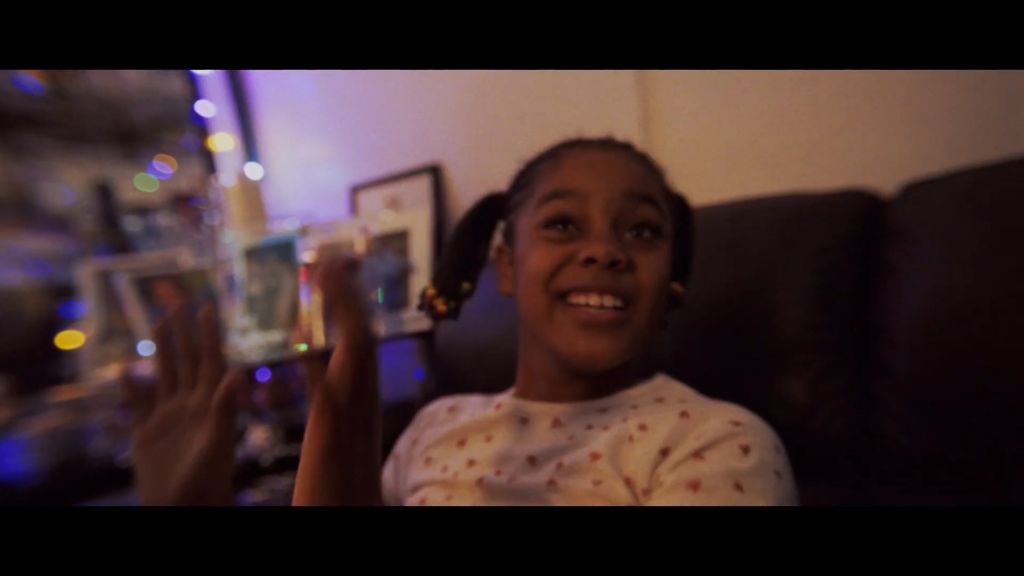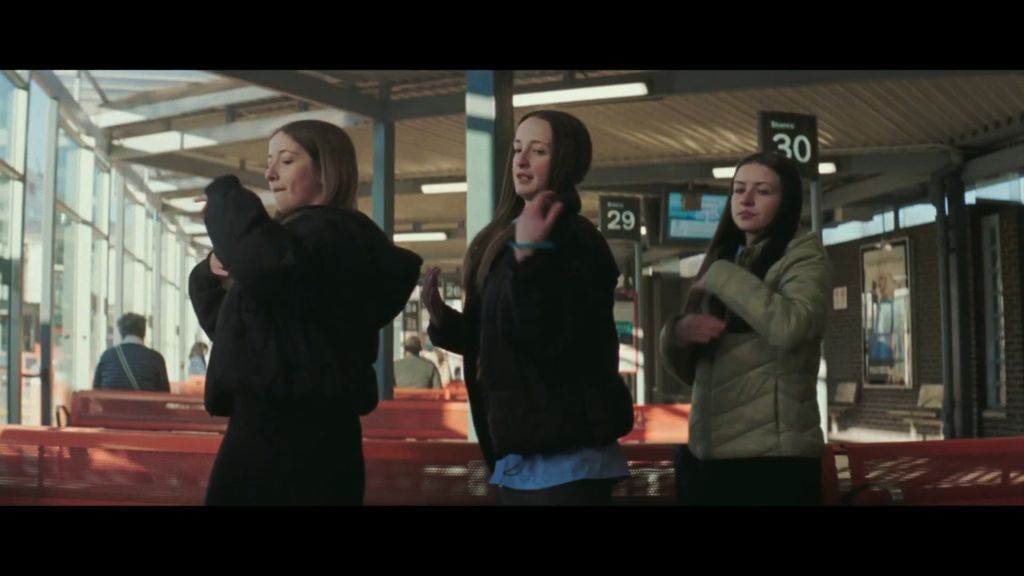Technology, talent & changing times; what lies ahead for new directors?
The democratisation of technology has ushered in a golden age of content creation as well as an explosion in aspiring directors. But just how easy is it to spot, nurture and help emerging talent succeed in 2024? Production companies, agency producers and directors’ reps talk to Selena Schleh about the road ahead for new directing talent.
It’s 2024, and it’s never been easier to call yourself a director. Got a phone? Then you have a full filmmaking kit, a production company and a distribution platform literally sitting in your back pocket.
It’s no exaggeration to say that the democratisation of technology - and the rise of social media - has revolutionised every aspect of the filmmaking process, from production to distribution. The ability to create, curate and then exhibit work on one’s own platform has dissolved geographical boundaries and surmounted social and economic barriers, allowing a new generation of filmmakers to break into spaces they would previously never had the opportunity to access.
Has [the] influx of filmmakers made it easier or harder for an eagle-eyed producer to spot the diamonds in the rough?
Just ask Somesuch’s recent signing, Renee Maria Osubu, a British-Nigerian photographer-turned-director who won shots Awards' New Director of the Year award last year. “Sharing my work on Instagram and Vimeo has opened up many doors for me. Social media doesn't guarantee you'll get hired, but it allows you to nurture a space and tone in how your work is interacted with,” she says. “You never know who will stumble across your page, but having a platform definitely allowed me to share new work and some of the things I care about in my own voice.”
Credits
powered by
-
- Production Company Somesuch
- Director Renee Maria Osubu
-
-
Unlock full credits and more with a Source + shots membership.
Credits
powered by
- Production Company Somesuch
- Director Renee Maria Osubu
- Post Company Electric Theatre Collective
- DP Courtney Bennett
- Casting Director Kharmel Cochrane
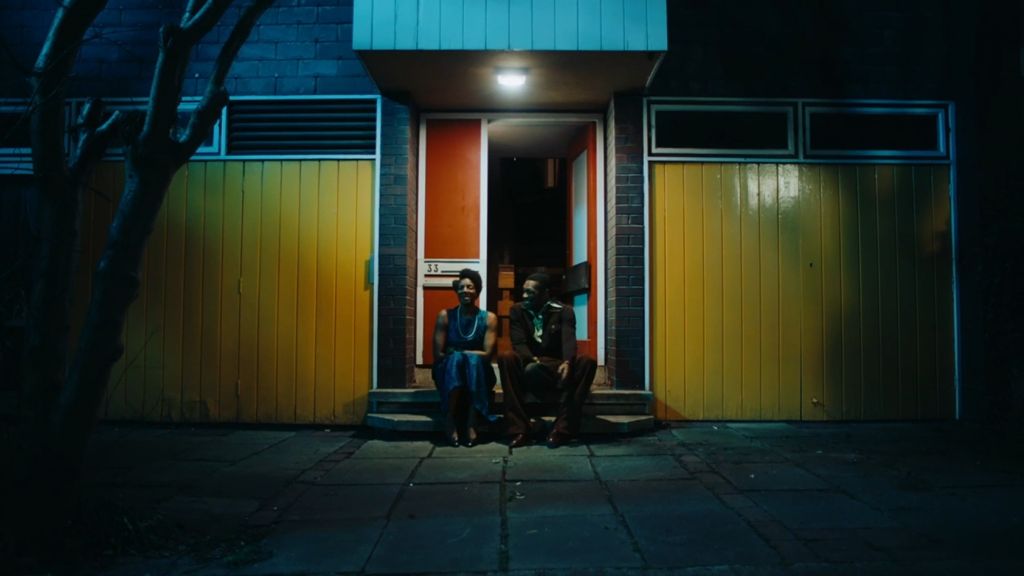
Credits
powered by
- Production Company Somesuch
- Director Renee Maria Osubu
- Post Company Electric Theatre Collective
- DP Courtney Bennett
- Casting Director Kharmel Cochrane
Above: Renee Maria Osubu, signed to Somesuch, won last year's shots Awards EMEA New Director of the Year category with her Jords video.
The result is an ever-deepening, ever-diverse pool of filmmaking talent, says Morgan Whitlock, Managing Director at The Sweetshop, “partly because there’s a bigger range of people who are able to lean into directing, and also because it's so easy for [producers] to now look at directing talent from anywhere in the world – you just need to go online.”
But has this influx of filmmakers made it easier or harder for an eagle-eyed producer to spot the diamonds in the rough? Responses are mixed. Rob Godbold, Founder and Executive Producer at Bold Films, worries that “real talent can get lost in the crowd. In these democratic times, it seems harder for a director to find their voice.”
Real talent can get lost in the crowd. In these democratic times, it seems harder for a director to find their voice.
Jason Felstead, Co-Founder and Executive Producer at Hamlet, has form when it comes to spotting rising stars, such as Angelo Cerisara, shots Awards' New Director of the Year in 2021, but insists “it’s actually a really difficult thing to find true talent these days. It's easy to shoot images, but it takes a lot of work, attitude and culture to be talented.”
Sam Kelly, Executive Producer and creative at US creative production studio Invisible Collective has a slightly different take: finding emerging filmmakers is easier, “but production companies now need new skills in order to vet them.”
Distinguishing between content creators and directors-in-waiting immediately narrows down the search, says Lasse Cato, Head of Communications at Bacon. “In general, there are more voices to sort through since there is more content out there but, due to the nature of our specific production company, we are mostly looking for craftspeople with a visual language and a talent for storytelling,” he says. “Technology has democratised content creation, but the directing pool that is a bit further ‘developed’ has not become much deeper.”
Credits
powered by
- Agency Mutant
- Production Company Hamlet
- Director Angelo Cerisara
-
-
Unlock full credits and more with a Source + shots membership.
Credits
powered by
- Agency Mutant
- Production Company Hamlet
- Director Angelo Cerisara
- Sound Design Raygun
- VFX Divide
- Creative Director Odin Saille
- Art Director Usman Abdul
- Creative Ruben Van Maldeghem
- Creative Usman Abdul
- Creative Catherine Hermans
- Producer Minnie Tran
- Executive Producer/Founding Partner Ruben Goots
- Executive Producer/Founding Partner Jason Felstead
- Producer Pim Verhaert
- Post Producer Dominique Ruys
- Producer Pim Verhaert
- DP Edouard Le Grelle
- Editor Angelo Cerisara
- Colorist Francis Qureshi
- VFX Supervisor Maarten Baert

Credits
powered by
- Agency Mutant
- Production Company Hamlet
- Director Angelo Cerisara
- Sound Design Raygun
- VFX Divide
- Creative Director Odin Saille
- Art Director Usman Abdul
- Creative Ruben Van Maldeghem
- Creative Usman Abdul
- Creative Catherine Hermans
- Producer Minnie Tran
- Executive Producer/Founding Partner Ruben Goots
- Executive Producer/Founding Partner Jason Felstead
- Producer Pim Verhaert
- Post Producer Dominique Ruys
- Producer Pim Verhaert
- DP Edouard Le Grelle
- Editor Angelo Cerisara
- Colorist Francis Qureshi
- VFX Supervisor Maarten Baert
Above: One of Angelo Cerisara's winning spots from the shots Awards EMEA in 2021.
So, what exactly is it that producers are looking for in a new director? The X factor is a “very personal feeling”, says Hamlet’s Felstead. So, while production companies will have their own specific criteria, beyond that it can be quite an emotionally led decision. Commercial producers, for example, will be looking for directors that are able to embody their vision in a short format.
“A short format demands certain tricks to catch the audience’s attention at a very fast pace, so we tend to look for technical directors." explains Felstead. "But it also needs to transport us - make us dream, laugh, cry - and all of that needs to happen in 30 seconds.”
Ultimately, I’m after a feeling - how does this person connect with me on an emotional level?
Emotions also play a big part in the process for Chris Baker, Director’s Rep at Bullion: “Ultimately, I’m after a feeling - how does this person connect with me on an emotional level?” he says. Baker also stresses the importance of isolating what the director themselves are bringing to the table; it’s easy to be seduced by factors like the art department, cinematography or talent appearing in the work.
For the same reason, Felstead focuses on the director’s storytelling abilities and long-term thinking over work that showcases current trends: the breakneck pace at which trends emerge, proliferate and die on social media makes them unreliable barometers of talent – far more telling is a film with evergreen appeal.
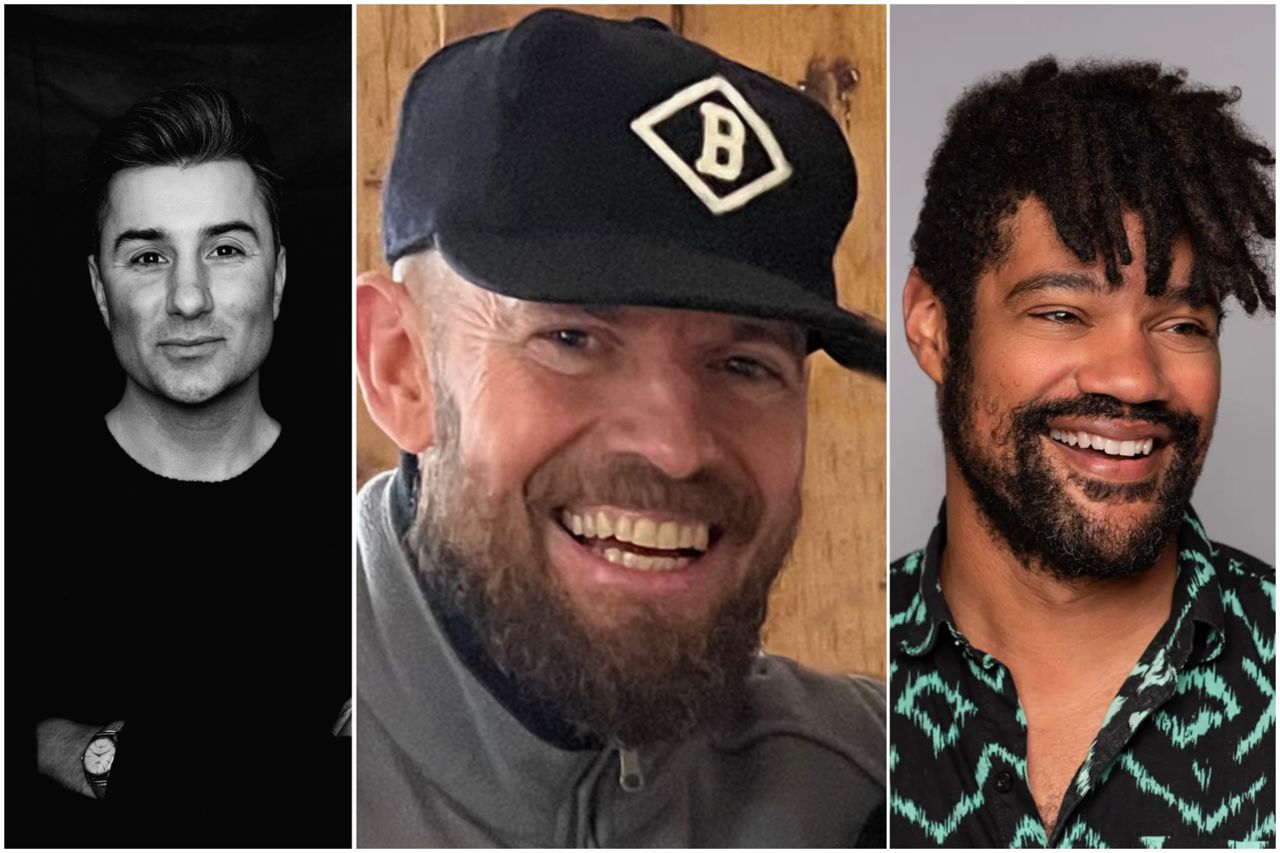
Above: The Sweetshop's Morgan Whitlock, BOLD's Rob Godbold and Sam Kelly from Invisible Collective.
But what really sorts the wheat from the chaff, agree all the producers that shots spoke to, is an original, independent creative vision. Bacon’s Cato points to their five most recent signings - Bonnie MacRae, Elena Petitti di Roreto, Martin Falck, Nalle Sjöblad and Jeppe Lange - as examples of talent who, while not all 'fully formed', have a clear directorial vision of what they want to do within the filmic medium.
What really sorts the wheat from the chaff is an original, independent creative vision.
Equally important, adds Invisible Collective’s Kelly, is an understanding of how to realise it. “Something that unifies all of our directors is a committed creative process. How a director communicates their vision, point of view and approach to problem solving is always what I find to separate the pros from the amateurs,” he says. “Even our youngest and freshest talents have a very refined and mature sense of their creative process: how they get their ideas to translate into the manifested vision and completion of a spot, a film, a completed work.”
What about skills other than behind the camera? From an agency producer’s perspective, having a broader understanding of production is “an absolute win”, says Charlie Gatsky, Uncommon’s President of Brands & Entertainment (and former Head of Production). She recently worked with Aftersun director Charlotte Wells on Wells’ first global campaign and was impressed by the “efficient and solution-focused” way she navigated production challenges as an untested commercials director: “There is no doubt that the directors who embrace the problem solving aspect of 'making' and who really understand the factors at play, can optimise how to best deploy the resources.”
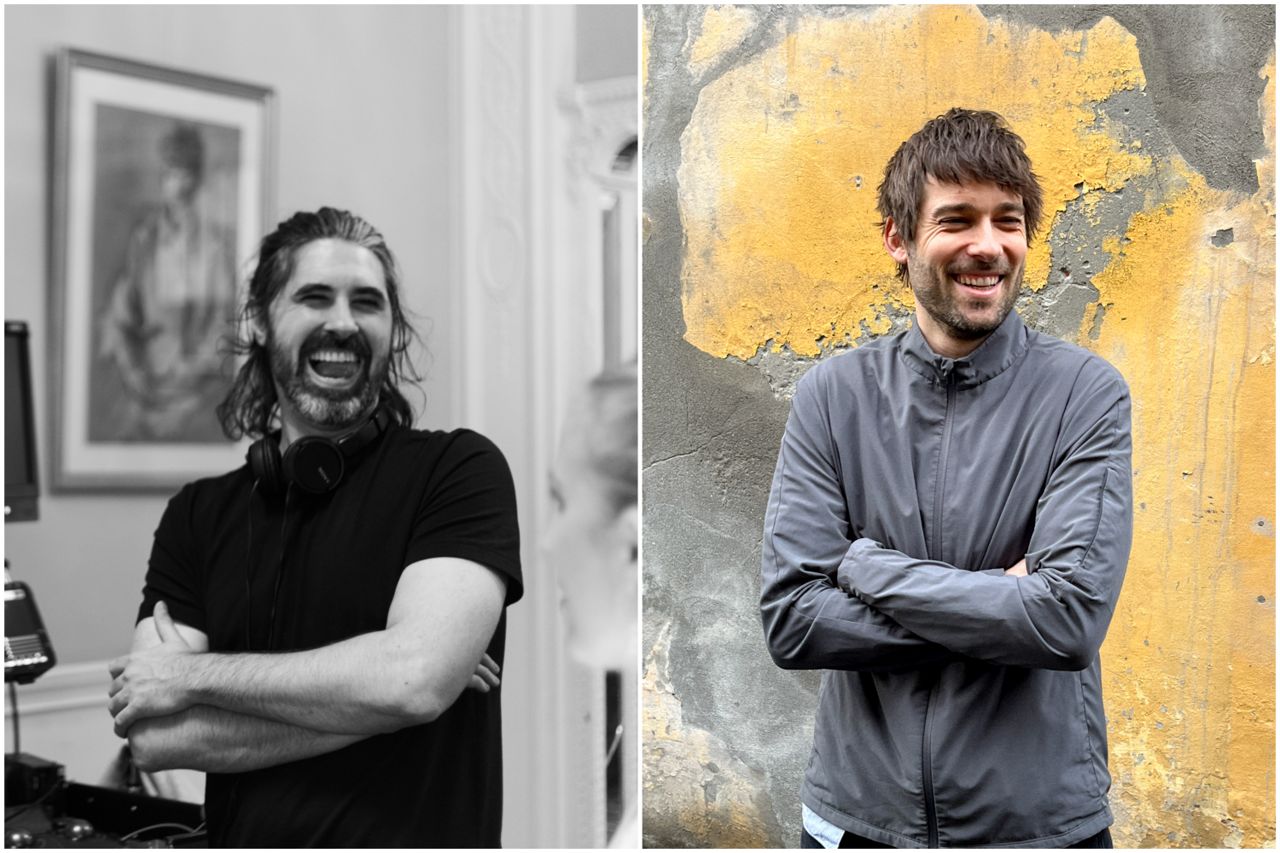
Above: Bullion's Chris Baker and Lasse Cato from Bacon.
Strong pitching and presenting skills are a definite advantage, notes Bold's Godbold, as “during the initial pitching stage, a director only has one proper shot to communicate their idea - they must use this opportunity to prove how dynamic and creative they can be. We need directors who are able to present their ideas in an engaging way and hold the room's attention." Although Sweetshop’s Whitlock argues that this is a side of the process that can be taught to new directors, unlike other more ephemeral qualities. “I can workshop with someone on how they treat, how they pitch, how they manage those meetings. But I can’t create an exciting, distinct voice in a filmmaker.”
There is a final consideration which seems to be increasingly sidelined: whether the production company can – and will - genuinely advance that young director’s career.
There is a final consideration, which, says Whitlock, seems to be increasingly sidelined: whether the production company can – and will – genuinely advance that young director’s career. “At the Sweetshop, we take a carefully curated approach to new directors. Even if we’re stupidly excited about their work, we have to ask ourselves, are they creating in a way that we can carry on? We have to be confident that they’re stepping into a space that we see a huge amount of opportunities in – and that we can help create those opportunities for them.”
An unfortunate corollary of the explosion in new talent, he argues, is that it’s encouraged a certain passivity towards new signings, with production companies content to act as not much more than shop windows. Unsurprisingly, that’s leading to high levels of churn. “Traditionally, certain production companies might have added one or two emerging filmmakers to their books, but then they wouldn’t have brought anybody else on board until those [directors] ‘moved up’,” he explains. “Now, they can sign six or so, and give them a go, but not invest in and support them in the way they used to. And, if it doesn’t work out, they’ll let them go 12 months later – because there are another six more incredible filmmakers out there waiting to be signed.”
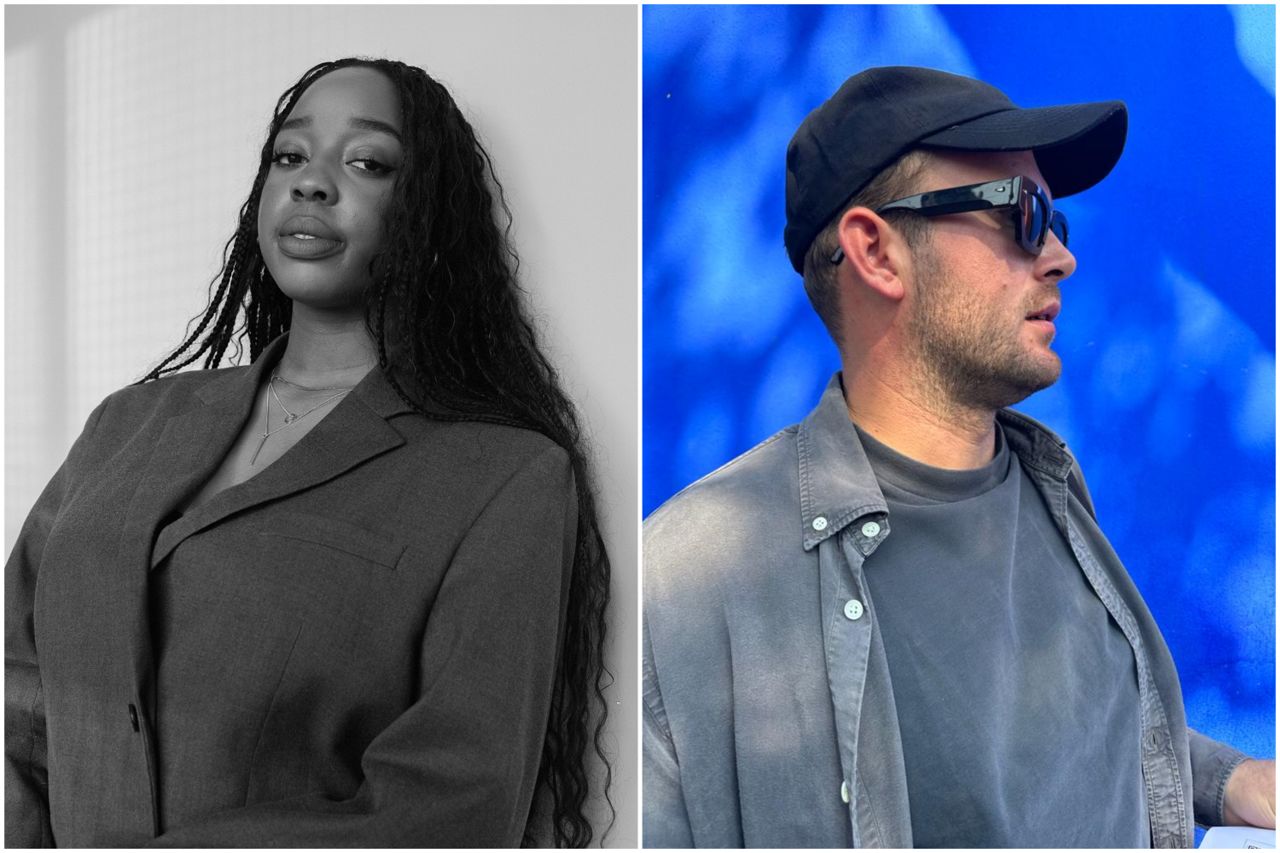
Above: Somesuch director Renee Maria Osubu and Hamlet's Jason Felstead.
Yet, even production companies with a strong reputation for nurturing young talent – among them Riff Raff, Hamlet and Bacon (which recently won the YDA Producer’s Award for its commitment to developing young directorial talent) - are finding it harder and harder to generate opportunities for their new directors, thanks to what Hamlet’s Felstead has dubbed “a climate of fear”.
Downward economic pressure and shrinking budgets are creating a situation in which the traditional pathways for new directors, such as charity films and underfunded commercials, are no longer solely the preserve of untested talent. Driven by a scarcity of work, more established directors, many with years of experience under their belts, are now entering – and winning – these lower budget pitches, as clients and agencies plump for a seasoned, safe pair of hands over a perceived wildcard.
Downward economic pressure and shrinking budgets are creating a situation in which the traditional pathways for new directors are no longer solely the preserve of untested talent.
“When the budgets become smaller, the willingness to try out new talents should increase,” points out Bacon’s Cato. “However, our experience is unfortunately the opposite. While pressure increases on the budgets, people are [still] aiming for top shelf talent.”
In many cases, notes Whitlock, new directors are being excluded from the pitch process altogether. “Traditionally, the conversation [with an agency] would go: ‘I've got this project, it doesn't have any budget - who’ve you got who’s looking for an opportunity?’ But that conversation doesn't take place anymore. So a charity film or an underfunded TVC won’t be put out to tender for young filmmakers.”

Above: Charlie Gatsky of Uncommon and Creature's Kristie Girvan.
This risk-averse culture and contagious caution isn’t just “dangerous” - as Felstead notes - for the next generation of directors and their development, it’s also leading to homogenised creative work.
“The real risk in having three proven, established commercials directors pitch, is that you're going to end up with an ad that looks like everything else – generic wallpaper,” argues Whitlock. “The crew will be the same, the cast is sometimes the same, the collection of people making it will have come from similar backgrounds because they’ve been [making commercials] for 20 years. So, the idea that it’s ‘risky’ giving a talented, unique, fresh voice – well supported by a brilliant production company – an opportunity, is nonsense.”
We are putting our brand and track record on the line, so we would never put someone up for a job if we didn’t think they had the skills for the task.
So, what’s the solution? “Our hope and recommendation would be for clients and agencies to trust more in the production companies when we recommend a lesser-known name for a job,” says Bacon’s Cato. “After all, we are putting our brand and track record on the line, so we would never put someone up for a job if we didn’t think they had the skills for the task.”
Credits
powered by
- Agency Uncommon/London
- Production Company Riff Raff
- Director Vedran Rupic
-
-
Unlock full credits and more with a Source + shots membership.
Credits
powered by
- Agency Uncommon/London
- Production Company Riff Raff
- Director Vedran Rupic
- Executive Producer Tom Berendsen
- Producer Christian Kuosmanen
- DP Nico Poulsson
- Colorist Julien Alary
- VFX Lead Ulf Lunden
- Sound Designer Erik Olsson

Credits
powered by
- Agency Uncommon/London
- Production Company Riff Raff
- Director Vedran Rupic
- Executive Producer Tom Berendsen
- Producer Christian Kuosmanen
- DP Nico Poulsson
- Colorist Julien Alary
- VFX Lead Ulf Lunden
- Sound Designer Erik Olsson
Above: Director Vedran Rupic had “very little in his reel" when Uncommon worked with him, "but his approach and innovative craft paid off in spades,” says Charlie Gatsky.
One agency which has consistently offered opportunities to new and emerging directors - and has the receipts to prove it - is Uncommon. “It’s a real badge of honour to have been the first or early adopter of emerging talent; being the first to help launch a career is hugely rewarding,” says Gatsky. However, she caveats, selling in a new director for a job is a delicate affair, involving myriad elusive factors beyond the usual practicalities of time, budget and script complexity.
“It’s often dependent on how confident the team and client are. Those less experienced may feel more exposed and want to see proof of the director’s skills on their reel,” continues Gatsky, adding that there are also the “realistic practicalities” of script complexity to consider. A newer, untested director may not be the ideal choice where celebrity talent or a major post production element is involved, for example. Or where there are specific performance requirements, such as humour – a notoriously tough category to break into.
Every brief and budget is an opportunity for someone - it’s just a matter of finding that right someone.
Nonetheless, the “palpable” energy and enthusiasm of a new director can go a long way to overcoming those obstacles, says Kristie Girvan, Head of Integrated Production at Creature London. She is “passionate” about championing young talent and cites Creature’s hiring of newcomers Furmaan + Vasso for an upcoming campaign as proof that “every brief and budget is an opportunity for someone - it’s just a matter of finding that right someone. Sometimes it’s clear that, even if they don’t have a lot of - if any - commercial direction experience, the next natural step would be our ad.”
Uncommon’s Vegamama spot for Wagamama is another example of raw talent trumping experience: Director Vedran Rupic had “very little in his reel when we worked with him, but his approach and innovative craft paid off in spades,” explains Gatsky.
Credits
powered by
- Agency Uncommon/London
- Production Company Iconoclast UK
- Director Amara Abbas
-
-
Unlock full credits and more with a Source + shots membership.
Credits
powered by
- Agency Uncommon/London
- Production Company Iconoclast UK
- Director Amara Abbas
- Editing Trim
- Post Production Electric Theatre Collective
- Sound Design Factory Studios/London
- Music Mr Pape
- Senior Creative Director Connor McManus
- Executive Producer Jean Mougin
- Executive Producer Guy Rolfe
- Head of Production Kate Sharpe
- Producer Luke Plaister
- Production Manager Marian Mikhail
- DP Nicolas Loir
- Production Designer Bon Walsh
- Editor Tom Lindsay
- Producer Polly Kemp
- VFX Lead Hani AlYousif
- Colorist Jason Wallis / (Colorist)
- Producer Oscar Wendt
- Creative Director Anthony Moore
- Sound Designer Michael Haines
- Audio Producer Ciara Wakley
- Music Supervisor Paul Brown
- Producer Liv Johnson
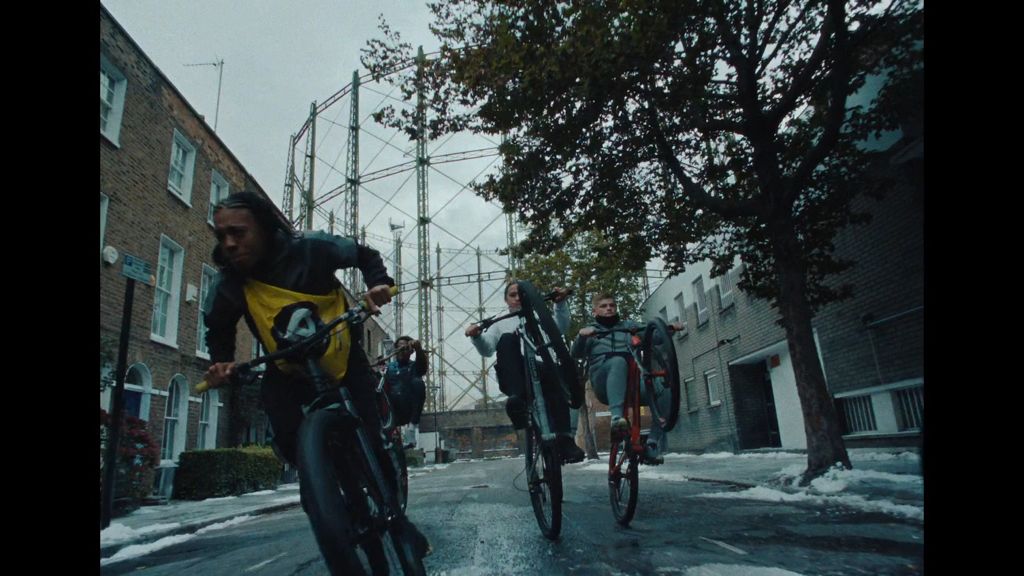
Credits
powered by
- Agency Uncommon/London
- Production Company Iconoclast UK
- Director Amara Abbas
- Editing Trim
- Post Production Electric Theatre Collective
- Sound Design Factory Studios/London
- Music Mr Pape
- Senior Creative Director Connor McManus
- Executive Producer Jean Mougin
- Executive Producer Guy Rolfe
- Head of Production Kate Sharpe
- Producer Luke Plaister
- Production Manager Marian Mikhail
- DP Nicolas Loir
- Production Designer Bon Walsh
- Editor Tom Lindsay
- Producer Polly Kemp
- VFX Lead Hani AlYousif
- Colorist Jason Wallis / (Colorist)
- Producer Oscar Wendt
- Creative Director Anthony Moore
- Sound Designer Michael Haines
- Audio Producer Ciara Wakley
- Music Supervisor Paul Brown
- Producer Liv Johnson
Above: Amara Abbas was supported by more seasoned roster-mate Romain Gavras on Uncommon’s Christmas commercial for JD Sports.
While agency producers might agree that a strong relationship with the production company is key when it comes to convincing an agency to take that leap of faith, in the current climate it seems jittery clients need extra levels of reassurance to place a project in less seasoned hands.
One production trend that’s helping to boost client confidence, according to Gatsky, is director mentorship: where a more experienced filmmaker supports, collaborates or even co-directs alongside a newcomer on a particular job. Bag For Life, Uncommon’s Christmas commercial for JD Sports, for example, was shot by relative unknown Amara Abbas of Iconoclast, supported by a more seasoned roster-mate, Romain Gavras.
In the current climate it seems jittery clients need extra levels of reassurance to place a project in less seasoned hands.
Meanwhile industry stalwart Daniel Wolfe has turned his long tradition of mentoring young directors into a successful basis for a production company, Love Song, with former assistant Elliott Power joining Wolfe as a fully-fledged co-director on EE’s recent, massive rebranding campaign. Done meaningfully, says Gatsky, the mentorship model works – and the work is “proof in point”.
Bacon has enjoyed similar success with Profound Mysteries, a collaboration with Scandi electronic duo Röyksopp, which saw emerging talent participating alongside accomplished filmmakers to create music videos, and has since led to young directors Markus Tangre and Holger Karberg winning Talent of the Year accolades in Norway and Denmark respectively.
EE – Switch off. Drift off
EE – EE Learn
Above: Lovesong's Daniel Wolfe was joined by former assistant Elliott Power as co-director on EE’s recent, massive rebranding campaign.
As the new year gets underway there’s a universal hope for more creative bravery and better scripts, but with global economic pressures set to continue in 2024, it’s unlikely that the new year will usher in the comparatively bigger budgets or carefree clients of the pre-Covid era.
But it’s not all doom and gloom for this generation of young directors, because they have a secret weapon in common: genuine self-sufficiency. Not only in terms of their technical skills – though as Felstead notes, “they can do a bit of everything – editing, motion design, designing treatments” – but in their work ethos as a whole.
Many emerging talents have strong producing skills as well as their own independent network of collaborators and makers meaning that, rather than sitting around hoping for opportunities to land in their laps, they’re pursing their own.
It’s not all doom and gloom for this generation of young directors, because they have a secret weapon in common: genuine self-sufficiency.
“There is a kind of entrepreneurial energy to new generation filmmakers,” says Whitlock, citing The Sweetshop’s latest new director, Dorothy Allen-Pickard, who’s “unbelievably active” in the documentary and long-form space, and “isn’t waiting for us to find those projects for her.”
“It’s important that directors remember the value they hold," concludes Somesuch’s Osubu. "A lot of new directors are great hustlers and have come from building their own opportunities. That grit and craft goes a long way.”
)














